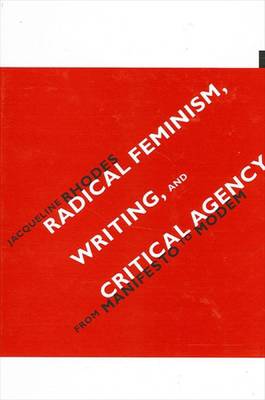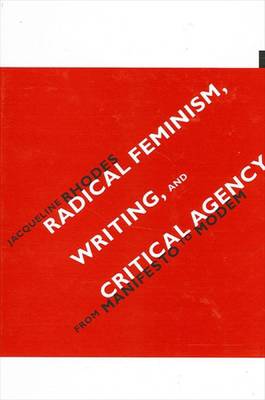
- Afhalen na 1 uur in een winkel met voorraad
- Gratis thuislevering in België vanaf € 30
- Ruim aanbod met 7 miljoen producten
- Afhalen na 1 uur in een winkel met voorraad
- Gratis thuislevering in België vanaf € 30
- Ruim aanbod met 7 miljoen producten
Omschrijving
Links radical feminist writings of the 1960s and 1970s to contemporary online women's networks.
This book traces the intersection of radical feminism, composition, and print culture in order to address a curious gap in feminist composition studies: the manifesto-writing, collaborative-action-taking radical feminists of the 1960s and 1970s. Long before contemporary debates over essentialism, radical feminist groups questioned both what it was to be a woman and to perform womanhood, and a key part of that questioning took the form of very public, very contentious texts by such writers and groups as Shulamith Firestone, the Redstockings, and WITCH (the Women's International Terrorist Conspiracy from Hell). Rhodes explores how these radical women's texts have been silenced in contemporary rhetoric and composition, and compares their work to that of contemporary online activists, finding that both point to a "network literacy" that blends ever-shifting identities with ever-changing technologies in order to take action. Ultimately, Rhodes argues, the articulation of radical feminist textuality can benefit both scholarship and classroom as it situates writers as rhetorical agents who can write, resist, and finally act within a network of discourses and identifications.
Specificaties
Betrokkenen
- Auteur(s):
- Uitgeverij:
Inhoud
- Aantal bladzijden:
- 140
- Taal:
- Engels
- Reeks:
Eigenschappen
- Productcode (EAN):
- 9780791462928
- Verschijningsdatum:
- 16/12/2004
- Uitvoering:
- Paperback
- Formaat:
- Trade paperback (VS)
- Afmetingen:
- 158 mm x 228 mm
- Gewicht:
- 217 g

Alleen bij Standaard Boekhandel
Beoordelingen
We publiceren alleen reviews die voldoen aan de voorwaarden voor reviews. Bekijk onze voorwaarden voor reviews.











